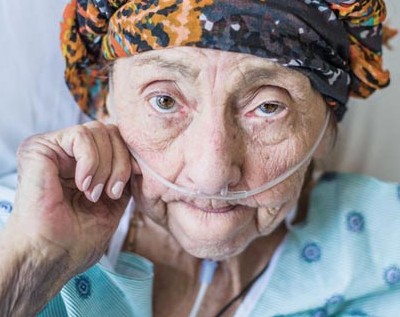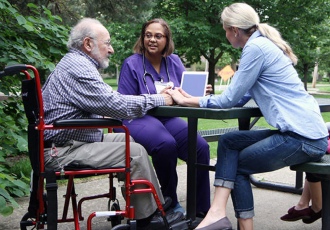By Eric Shaban, MD, Regional Medical Director, VITAS Healthcare
Wives, husbands, and family members who care for a loved one with Alzheimer’s disease/related dementias (ADRD) often carry the physical and emotional burdens of the caregiving role for years, and their burdens grow as their loved one’s disease progresses.
That data-driven reality reinforces the importance of starting supportive hospice and palliative care for both patients and their families/caregivers at the time of diagnosis to manage patients’ symptoms and relieve caregivers’ anxiety, depression, and hardships.
Hospice care has always focused on supportive care for patients and their families. New data emphasizes the depth of caregivers’ challenges:
- ADRD caregivers experience a 30% increase in depressive symptoms, compared to caregivers whose loved ones do not have ADRD, and the incidence of depression rises in proportion to the length of time they care for someone with ADRD
Among the strategies suggested by the data: end-of-life care that honors patients’ preferences and includes early advance care planning, designation of a healthcare proxy to facilitate proper information flow and care plans, and supportive solutions that “care for the caregiver” to reduce the long-tail emotional burdens and depressive symptoms that are seemingly inevitable.
Dr. Illeana Leyva and Dr. Eric Shaban, VITAS regional medical directors, give a step-by-step demonstration of how to approach a goals-of-care conversation.
As clinicians, we need to minimize dementia’s impact through strategic, holistic approaches to care that meaningfully manage patient symptoms/behaviors and have a simultaneous, positive impact on caregivers.
Hospice teams provide multi-layered end-of-life care to patients with ADRD as soon as they meet eligibility guidelines, and hospice’s interdisciplinary approach creates a positive spillover effect on the mental and physical health of patients’ family members and caregivers.


